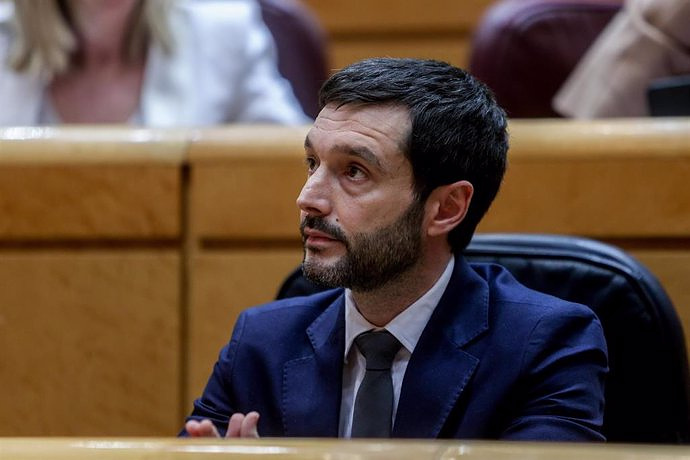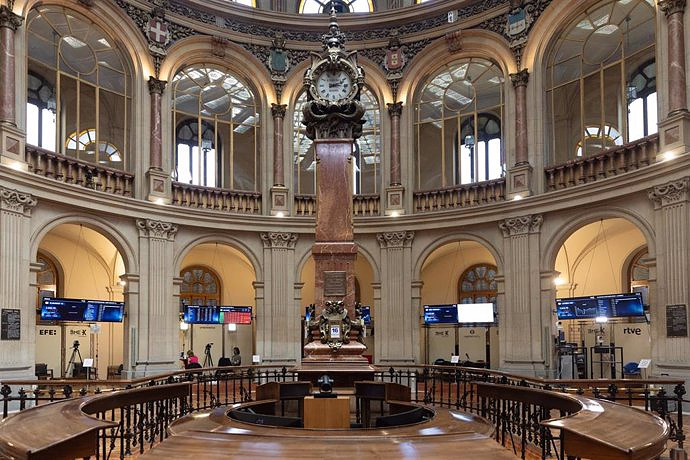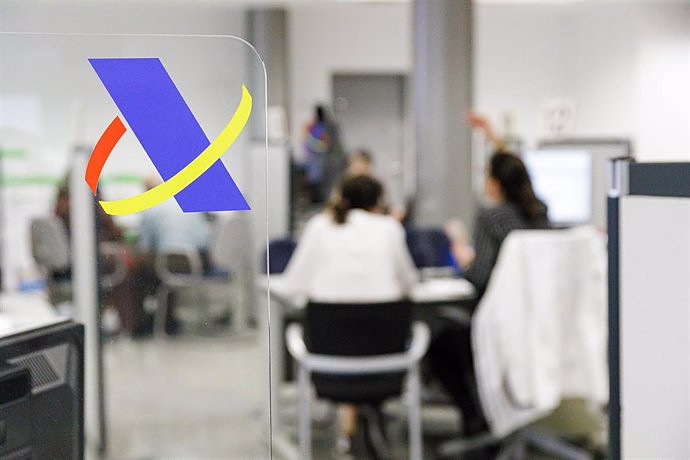MADRID, 21 Jul. (EUROPA PRESS) -
The Minister of Inclusion, Social Security and Migration, José Luis Escrivá, presented this Thursday, before the Commission for the Monitoring and Evaluation of the Agreements of the Toledo Pact, the future reform of the self-employed contribution system for real income, agreed this week with the main associations, and has defended that it will give "security and certainty" to this group.
Escrivá has pointed out that, with the current system, Spain represented "a great anomaly", since the self-employed "did not contribute according to their net income" and generated "a lot of inequity and weakness of the protective action".
84% of the self-employed contribute for a minimum base, below 300 euros per month, which, combined with the periods without contributions, which are usually "quite long" among self-employed workers, "has generated that their pensions are relatively low", specifically, 43% below that of wage earners.
For this reason, Escrivá has stressed that the new system introduces changes in quotas, but also modifies the social protection system, with an extension of benefits for cessation of activity, with recognition of partial interruptions. It also includes a RED mechanism, both cyclical and sectoral.
The future reform of the contribution system also contemplates a "reduced fee for self-employed workers who start their activity", which will replace the previous flat rate. This measure, with a fee of 80 euros, will have a "general nature" during the first year, as the minister pointed out, with the possibility of extending it for another 12 months if the evolution of income has not been able to take off in the first year and continues below the Minimum Interprofessional Salary.
Escrivá has highlighted the "flexibility" that this reform will give the self-employed, since it will allow them to change their contribution brackets every two months and, in addition, it will give them the possibility of having a generic deduction of 7% of net income, which will be 3% for self-employed companies.
The self-employed must be contributing for their net income in 2032, for which the Government and the social agents have agreed during those years "a transitory period" in the contribution brackets for the "general introduction" of the new regime and for the adaptation both of the self-employed as of the Administration.

 Exploring Cardano: Inner Workings and Advantages of this Cryptocurrency
Exploring Cardano: Inner Workings and Advantages of this Cryptocurrency Seville.- Economy.- Innova.- STSA inaugurates its new painting and sealing hangar in San Pablo, for 18 million
Seville.- Economy.- Innova.- STSA inaugurates its new painting and sealing hangar in San Pablo, for 18 million Innova.- More than 300 volunteers join the Andalucía Compromiso Digital network in one month to facilitate access to ICT
Innova.- More than 300 volunteers join the Andalucía Compromiso Digital network in one month to facilitate access to ICT Innova.-AMP.- Ayesa acquires 51% of Sadiel, which will create new technological engineering products and expand markets
Innova.-AMP.- Ayesa acquires 51% of Sadiel, which will create new technological engineering products and expand markets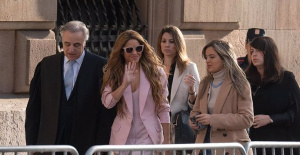 Prosecutor's Office requests the filing of a new case against Shakira for alleged tax crime
Prosecutor's Office requests the filing of a new case against Shakira for alleged tax crime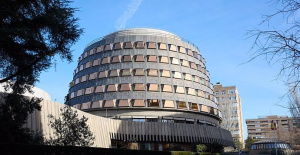 The Constitutional Court endorses the law that criminalizes harassment in abortion clinics
The Constitutional Court endorses the law that criminalizes harassment in abortion clinics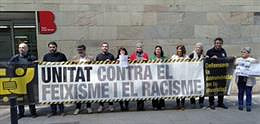 PSC and Junts join the commitment not to agree with Vox or Aliança Catalana
PSC and Junts join the commitment not to agree with Vox or Aliança Catalana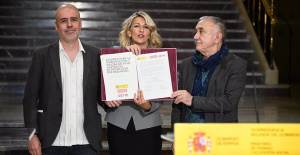 This is the subsidy reform: higher amounts and beneficiaries and compatibility of unemployment with a salary
This is the subsidy reform: higher amounts and beneficiaries and compatibility of unemployment with a salary How Blockchain in being used to shape the future
How Blockchain in being used to shape the future Not just BTC and ETH: Here Are Some More Interesting Coins Worth Focusing on
Not just BTC and ETH: Here Are Some More Interesting Coins Worth Focusing on They develop devices for the precise diagnosis of cancer patients
They develop devices for the precise diagnosis of cancer patients UMH researchers are working on a high-quality apricot crop that requires less irrigation water
UMH researchers are working on a high-quality apricot crop that requires less irrigation water The UPV develops an application to improve the quality of life of patients with glioblastoma
The UPV develops an application to improve the quality of life of patients with glioblastoma A sensor system obtains the fingerprint of essential oils and detects if they have been adulterated
A sensor system obtains the fingerprint of essential oils and detects if they have been adulterated A million people demonstrate in France against Macron's pension reform
A million people demonstrate in France against Macron's pension reform Russia launches several missiles against "critical infrastructure" in the city of Zaporizhia
Russia launches several missiles against "critical infrastructure" in the city of Zaporizhia A "procession" remembers the dead of the Calabria shipwreck as bodies continue to wash up on the shore
A "procession" remembers the dead of the Calabria shipwreck as bodies continue to wash up on the shore Prison sentences handed down for three prominent Hong Kong pro-democracy activists
Prison sentences handed down for three prominent Hong Kong pro-democracy activists ETH continues to leave trading platforms, Ethereum balance on exchanges lowest in 3 years
ETH continues to leave trading platforms, Ethereum balance on exchanges lowest in 3 years Investors invest $450 million in Consensys, Ethereum incubator now valued at $7 billion
Investors invest $450 million in Consensys, Ethereum incubator now valued at $7 billion Alchemy Integrates Ethereum L2 Product Starknet to Enhance Web3 Scalability at a Price 100x Lower Than L1 Fees
Alchemy Integrates Ethereum L2 Product Starknet to Enhance Web3 Scalability at a Price 100x Lower Than L1 Fees Mining Report: Bitcoin's Electricity Consumption Declines by 25% in Q1 2022
Mining Report: Bitcoin's Electricity Consumption Declines by 25% in Q1 2022 Oil-to-Bitcoin Mining Firm Crusoe Energy Systems Raised $505 Million
Oil-to-Bitcoin Mining Firm Crusoe Energy Systems Raised $505 Million Microbt reveals the latest Bitcoin mining rigs -- Machines produce up to 126 TH/s with custom 5nm chip design
Microbt reveals the latest Bitcoin mining rigs -- Machines produce up to 126 TH/s with custom 5nm chip design Bitcoin's Mining Difficulty Hits a Lifetime High, With More Than 90% of BTC Supply Issued
Bitcoin's Mining Difficulty Hits a Lifetime High, With More Than 90% of BTC Supply Issued The Biggest Movers are Near, EOS, and RUNE during Friday's Selloff
The Biggest Movers are Near, EOS, and RUNE during Friday's Selloff Global Markets Spooked by a Hawkish Fed and Covid, Stocks and Crypto Gain After Musk Buys Twitter
Global Markets Spooked by a Hawkish Fed and Covid, Stocks and Crypto Gain After Musk Buys Twitter Bitso to offset carbon emissions from the Trading Platform's ERC20, ETH, and BTC Transactions
Bitso to offset carbon emissions from the Trading Platform's ERC20, ETH, and BTC Transactions Draftkings Announces 2022 College Hoops NFT Selection for March Madness
Draftkings Announces 2022 College Hoops NFT Selection for March Madness



